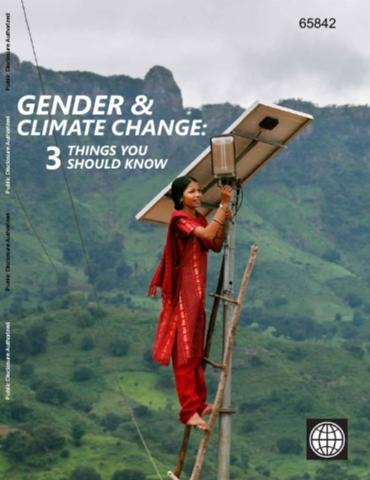Resource information
The World Bank is making strides in mainstreaming gender-sensitive approaches to climate action on the ground. Ensuring that men and women have equal access to education, economic opportunities, productive inputs and equal chances to become socially and politically active can generate broad productivity gains, and lead to more inclusive and greener development path for all. For the World Bank, gender analysis is an integral aspect of the upstream social analysis that is required to inform both development policy lending (DPL) and investment lending (IL). It helps identify and suggest ways to mitigate possible risks in terms of exacerbating gender inequality, and highlight opportunities to enhance positive outcomes for gender equality. The entry points for such upstream gender analysis include Poverty and Social Impact Analysis (PSIA) in the case of DPL, climate financing mechanisms are beginning to adopt gender-sensitive approaches in program design and results frameworks, but more needs to be done. Much can be done to improve the effectiveness of climate finance and actions on the ground by ensuring that gender relations are taken into account in design, implementation, and measurement of results. But this can only be achieved through a concerted effort to apply a gender lens in climate finance mechanisms. It matters for development, and it matters for effective action on climate change.


